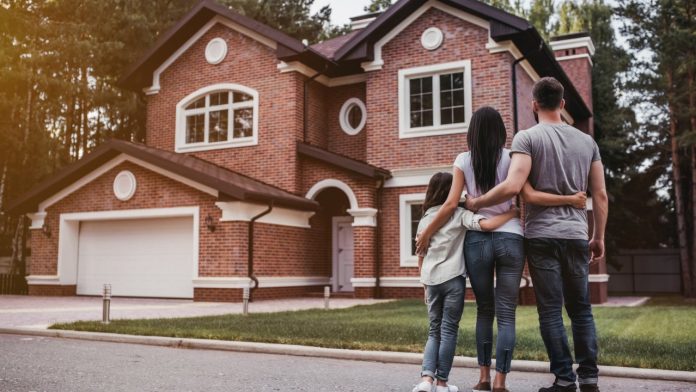According to some research, first-time buyers make up 33% of people buying houses.
If you’re trying to buy a home for the first time, there are many hoops to jump through, which means there are many mistakes to make along the way.
Thankfully, we wrote up the perfect guide to help you have a successful time buying your first home, so make sure you keep reading.
1. Making a Small Down Payment
You should put at least 20% of the cost of your home as a down payment. If you don’t, then you’ll have to pay for private mortgage insurance, which is very expensive.
However, there are some first-time homebuyer programs that will let you put a smaller percentage down. Sometimes this can be a good thing, but a seller may decide to go with someone else who has a better offer.
If you’re going to aim for 20%, first you’ll have to figure out how much to save. The bigger the down payment you make, the less your mortgage will be. This means you’ll have more affordable monthly payments.
However, with the way the prices have been rising, it can make taking time to save difficult. You should ensure that your down payment is comfortable enough so that you aren’t stressed about your monthly payments.
Some experts recommend saving for between three to five years before buying a home.
2. Not Getting Building Insurance
When you’re wondering what to avoid, building insurance isn’t one of them.
Building insurance will help to cover any cost that you’ll incur for rebuilding or repairing a property that was damaged in a fire, storm, or flood.
However, it can also cover permanent fittings and fixtures in the home. Depending on the policy, it might also include your fence, pipework, or garage.
If you don’t have this insurance, you’ll be liable for everything on your own as soon as you sign that paper.
3. Not Having an Agreement in Principle
You might get excited looking for your new home, but it’s important to have a mortgage lined up first.
You should always get an agreement in principle from the lender before you start shopping. An agreement in principle is kind of like a mortgage promise.
It is a certificate from the lender saying that you’re valid for a certain amount for about one to three months. It’s not an official lender, but it’ll help give you an idea of your budget.
It can also help to reassure lenders that your mortgage won’t fall through if they choose to sell the home to you.
4. Ignoring Loan Programs
Many first-time buyers don’t realize that there are many programs out there that can help them afford a home.
For example, if you were a veteran who served in the military, you can qualify for a VA home loan. These are mortgages that the U.S. Department of Veterans Affairs approves.
You don’t have to use any down payment, and you’ll be able to get 100% financing.
There are also Federal Housing Administration loans that will let you only put a down payment of 3.5%. This loan is also great if your credit score isn’t the best.
5. Underestimating Costs
You can’t just look at the price that the home is selling to determine if you can afford it.
Instead, be prepared for a lot of extra bills that come once you’ve already bought the home. In addition to your mortgage payment, you’ll also have to pay for TV packages, insurance, Internet, water, and electric bills.
When you apply for a loan, the lender will already take these costs into account to see what you can actually afford to pay, but you should make sure that it all fits within your budget.
If the house is going to need improvements or repairs, you’ll have to factor in that cost as well.
6. Not Researching the Area
Before you start looking for homes, do some research on neighborhoods or areas that you might want to live in.
For example, is there a lot of space? Are there good schools for that zones? What are the amenities like?
Do you need your own car, or is it close to a bus or a train stop? Will you be able to walk to wherever you need?
This can even help you narrow down which houses would be great for you. A real estate agent can even help you narrow it down even more.
When you do find a good neighborhood, make sure you drive there and check it out in person to see if it seems like a good fit for you.
7. Not Checking Credit Score
Your credit score is a financial resume that will let lenders decide whether or not you’re trustworthy.
If you have a poor credit score, they could reject your application. This will mean that your credit score gets even lower since the rejected applications do count against it.
That’s why you should only apply to three lenders at the most, and do your research before applying to them.
Check your credit score before you start applying. If you have a poor credit score, you may want to find lenders that work with lower credit scores.
Discover More Things First-Time Buyers Need to Watch Out For
These are only a few things that first-time buyers need to be aware of, but there are many more things as well.
We know that buying your first home can be scary, but we’re here to help you out.
If you enjoyed this article, make sure that you explore our website to find more articles just like this one.










